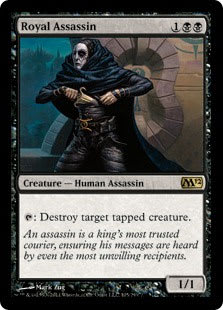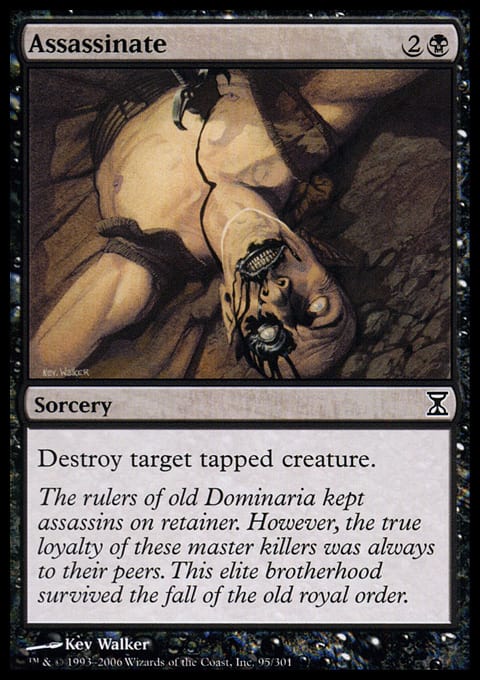Do you have a friend, sibling, parent, or significant other who you think would love Magic? Does this person have a strong interest in gaming, fantasy literature, or any other hobby that lines up with what Magic has to offer? When you try to teach this person, does he or she immediately seem overwhelmed? I may have a solution that can help you spark interest in that individual. The answer, my dear readers, lies in one word:
Flavor.
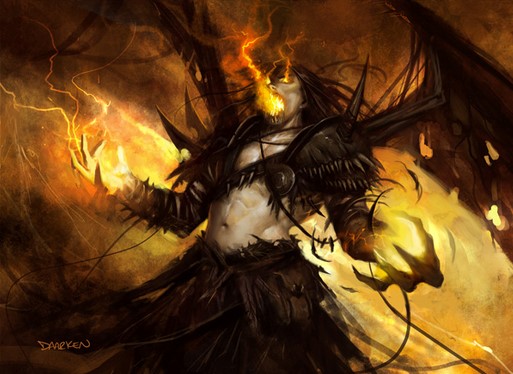
A Long Time Ago, on a Tabletop Far, Far Away . . .
It all started with a small box set of three booklets published in 1974. Dungeons & Dragons allowed gamers everywhere to take on the roles of warrior, wizard, cleric, and rogue as they delved deep into forgotten dungeons in search of experience and treasure. As the game evolved over time, additional races and classes were added, allowing players to take the form of anything from a wood elf ranger to a half-orc barbarian.
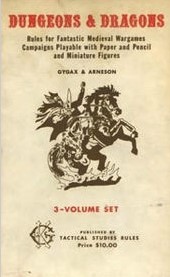
Photo courtesy of http://en.wikipedia.org/wiki/Dungeons_%26_Dragons
As video games began to become more and more popular, one of its staples was the RPG. Taking many elements from its tabletop predecessors, RPGs allowed the player to create a character from humble beginnings, choose a particular class that interested him or her, and grow overtime into a force to be reckoned with.
 |  |
Super Mario RPG: Legend of the Seven Stars & Chrono Trigger images courtesy of Wikipedia. | |
Today’s gaming, for the most part, follows a similar type of class system, with additions such as weapon-granted abilities or different character trees that allow for greater customization within the chosen class. Multiplayer online RPGs, such as World of Warcraft, Guild Wars, and Borderlands allow players to come together and show off their unique character builds to other players through combat. Even open-world games such as Skyrim, which promises “no classes,” contains a tiered ability structure, encouraging you to figure out how you want to play your character and build it accordingly.
Always interested in how games are designed, I used to wonder to myself, “Why is having a class important at all?” Eventually, I came to learn that what a class enables a new player to do is more easily learn the combat system within a game. When a player decides on a role that he or she would like to portray, the player will go into the game with expectations on what that character should be able to do. If I start a new character and pick the barbarian class, I am going to expect that character to be excellent in combat, to probably wield two-handed weapons, and to be able to enter a combat rage to overwhelm my foes. Game designers can use these expectations to their advantage when attempting to introduce new players to their games or combat systems by creating ways to allow those players to do what they already expect they should be able to do.

Selecting your class is always a pivotal moment in any RPG, and it will ultimately dictate your play experience.
Image courtesy of http://www.shamusyoung.com/twentysidedtale/?p=17206
Facing the Trials
My younger brother and I are a little over five and a half years apart. Growing up, this age difference always seemed to keep us from being able to share our hobbies. When I would start to grow out of one thing, he was just growing into it. This pattern seemed to continue for me well into high school, and I began to fear that we would always be separated by the years between us. One of my passions growing up was Magic, and there were multiple occasions when I would try to teach my younger brother how to play in hopes that we could share a common interest, battling each other with different decks. However, all of my attempts to convince my brother to sit down and learn the game would always end in failure, mostly due to the intimidating number of cards I possessed and my own inability to properly show him how the game worked.
Flash-forward ten years. I am out of college and living on my own in New Jersey. My parents (back in Pennsylvania) had started to renovate my old bedroom and had boxed up a lot of my stuff. On a visit home, I went through an old box of junk at my mother’s request in order to make sure there was nothing contained within that I would miss if she sold or donated it. As I sifted through broken ninja-turtle action figures and plastic army men, I came upon a beaten-up manila folder with the words “D&D Stuff” written on the front in black magic marker. Waves of nostalgia began to wash over me as I read through countless character ideas written by a twelve-year-old me. One character, labeled as Grunk the Goblinomancer, was particularly interesting. Apparently, I had created a class based on one of my oldest Magic decks, a goblin tribal deck. My character was an orc sorcerer capable of summoning hordes of goblins to do his dirty work. “Funny,” I thought. “I was attempting to relate my Magic deck to D&D.”
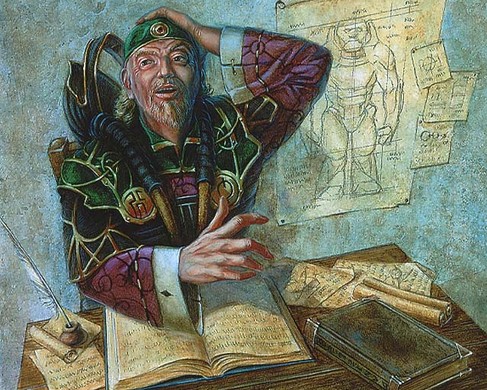
Finding Enlightenment
That is when it hit me. When a new player looks at Magic for the first time, he or she is trying to relate the game to something that he or she already knows and understands. Just like when a new player in a video game expects a particular class to play in a certain way, new Magic players are most likely approaching the game in a similar mindset. They might be looking for flavorful aspects of the decks that they are playing to relate to in order to better understand the game. To keep this as simple as possible, imagine you are a brand new player and your friend is about to teach you Magic. You are presented with the following three options:
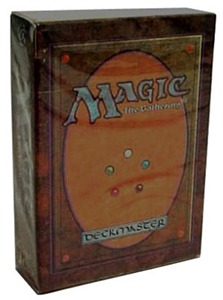 |  |  |
A Control Deck | A Combo Deck | An Agro Deck | ||
As a new player, these terms are completely foreign to you. You ask your friend, “What does the combo deck do?” He excitedly replies “Ooh, this deck is great and is something new I have been working on. You see, the idea is to flash in a Deceiver Exarch at the end of your opponent’s turn and enchant it with a Splinter Twin in order to win by attacking with infinite creatures.” “Let’s just play Call of Duty,” you reply, visually confused and frustrated with Magic yet again.
Now Imagine your friend presented you with the following three decks, knowing you play D&D:
 |  |  |
Assassin | Barbarian Elemental | Wizard | ||
You pick assassin because you always like to play as an assassin in RPG-type games. You sit down, shuffle up, and start playing against your friend who chose the Barbarian. The two of you play your first game, your friend explaining the rules as you play. The deck you chose is a lot of fun. It lets you control a bunch of Assassins and even lets you murder your opponent’s creatures yourself.
You have a blast and ask to play again, this time trying out the elemental wizard.
These two scenarios are obviously a little exaggerated (as I hope no one out there is trying to teach people how to play Magic by giving them a Splinter Twin combo deck), but the point is that by playing into what your friends already like, you may be able to more easily spark an interest in them to play Magic. Use the flavor of the cards to your advantage.
A New Hope
In order to test this theory, I again approached my younger brother, asking if he would like to learn how to play Magic. He seemed skeptical at first, but after I showed him the three options above, he chose the assassin deck (as I expected he would). Shuffling up the wizard deck, we played our first game. It could not have gone better. He quickly learned the basics of Magic over the course of a few games, and he began to show a general interest by asking me about the other decks that I play. After a long night of Magic, I showed him my Commander deck, and I started to explain to him the differences between Commander and the format we were playing. “Can you build me a Commander deck that played like an assassin?” he asked. I was shocked and elated and a million other things all at the same time. “Absolutely” I said with a smile, and I eventually gave him his own Commander deck based on capturing the feel of playing like an assassin or a rogue. My hope is that he one day will attempt to create a decklist on his own and e-mail it to me, asking my opinion or for card ideas to include in his list.
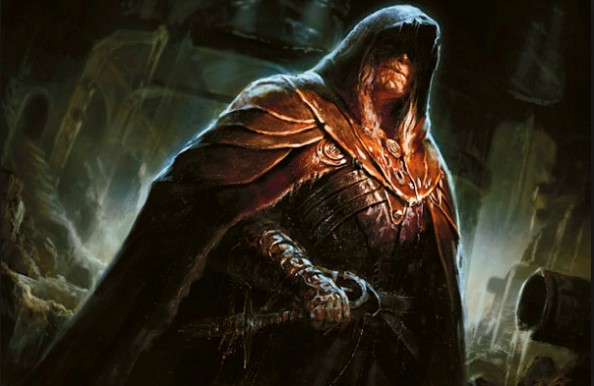
Use the Flavor, Vorthos!
There are well over ten thousand individual Magic cards in existence. With the right searching, you should be able to craft some straightforward, flavorful decks to help you teach your friends. With time, your friends will move away from the “deck class” and will start to build their own decks based on card synergy and efficiency, but for now, let them learn the game by playing as something they are comfortable with. Ease them into the pool of ten thousand cards. We want new players to dive into the deep end on their own when they are ready, not be thrown in and drown.














